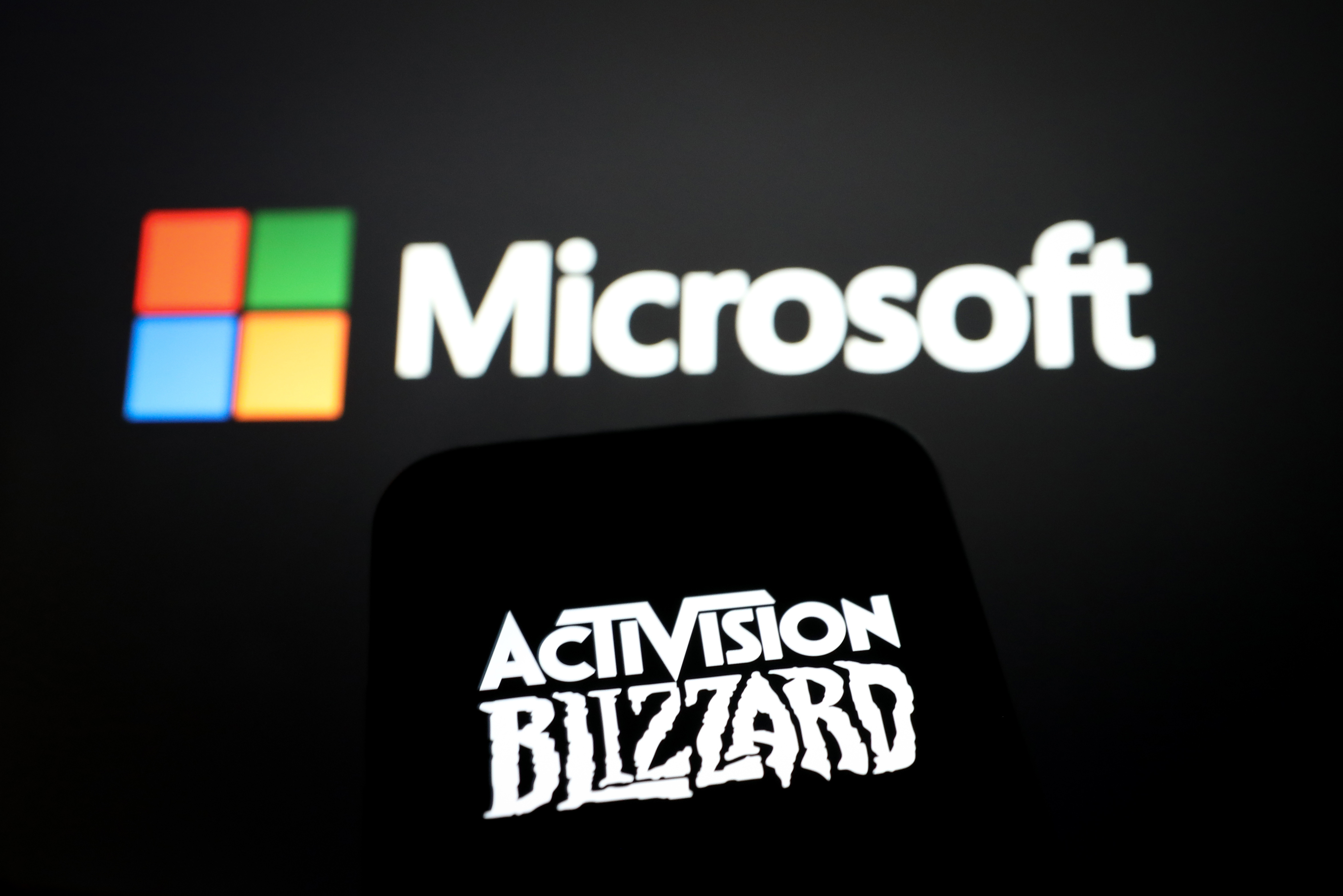Microsoft: Activision deal poses antitrust test
Why is the FTC trying to stop Microsoft from buying Activision?

A free daily email with the biggest news stories of the day – and the best features from TheWeek.com
You are now subscribed
Your newsletter sign-up was successful
The smartest insight and analysis, from all perspectives, rounded up from around the web:
Bill Gates is long gone from the helm, but Microsoft is back under federal scrutiny once again, said Therese Poletti in MarketWatch. The Federal Trade Commission last week sued to block its $69 billion deal to buy video-game maker Activision Blizzard, saying it "would let Microsoft suppress competitors of its Xbox business." That argument, "it would appear, has actual legs." When Microsoft bought Bethesda Softworks last year, "it made some of its popular games exclusive to Xbox and PCs," despite assuring European antitrust authorities "it had no incentive to withhold" games from rivals. Microsoft was corporate America's bad boy in the late 1990s when it battled the Justice Department over monopoly charges, but it has "portrayed itself as squeaky-clean for the past decade-plus" while the four other tech giants — Apple, Google, Meta, and Amazon — attracted federal attention. It seems Microsoft's run "as the 'white knight' of Big Tech" is over.
Microsoft tried to make concessions to make the deal more palatable, said Jennifer Saba in Reuters. It agreed to offer Activision's games, which include popular titles like Call of Duty and Candy Crush, to Nintendo and Sony for 10 years. "The question is what happens after that." Facebook's 2012 acquisition of Instagram looms large in this case. "The threat of dominance was hard to see" at the time, but the transaction "catapulted Facebook into one of the world's largest beneficiaries of digital ad dollars." The FTC has regretted approving it ever since. Microsoft's acquisition of Activision is a so-called vertical merger, "where the two businesses don't compete directly," said David McCabe in The New York Times. In 2017, the Department of Justice lost a "bruising" battle over a vertical merger when it sued to block AT&T's $85.4 billion purchase of Time Warner. A federal judge ultimately was "unconvinced the combination would harm competition." FTC chairwoman Lina Khan is using Microsoft as another test case to "push the boundaries of antitrust law," arguing that even if there's not an obvious link to higher prices, giant tech firms use mergers to "exert their power."
The Week
Escape your echo chamber. Get the facts behind the news, plus analysis from multiple perspectives.

Sign up for The Week's Free Newsletters
From our morning news briefing to a weekly Good News Newsletter, get the best of The Week delivered directly to your inbox.
From our morning news briefing to a weekly Good News Newsletter, get the best of The Week delivered directly to your inbox.
The problem with the FTC's case is that video-game hardware makers have always made games too, said Scott Shackford in Reason. Claiming that suppresses competition reflects "a profound misunderstanding of the gaming industry." Going back to the 1990s, if you wanted to play Mario Kart, you needed a Nintendo. If you wanted Sonic the Hedgehog, you needed Sega. If the deal goes through, Microsoft's share of the gaming industry would rise to all of 10.7 percent, hardly a monopoly. The government is just "looking for any sort of justification to intervene" to prevent big companies from growing. Tech history "is filled with apparently dominant platforms that were toppled rapidly by competitive forces," said Jonathan Barnett in The Hill — without any help from the antitrust cops. Shares of every giant tech company, including Microsoft, have fallen dramatically in the past 12 months, as it becomes clear that the market is already identifying cracks in the tech giants' "purportedly invincible armor."
This article was first published in the latest issue of The Week magazine. If you want to read more like it, you can try six risk-free issues of the magazine here.
A free daily email with the biggest news stories of the day – and the best features from TheWeek.com
-
 How the FCC’s ‘equal time’ rule works
How the FCC’s ‘equal time’ rule worksIn the Spotlight The law is at the heart of the Colbert-CBS conflict
-
 What is the endgame in the DHS shutdown?
What is the endgame in the DHS shutdown?Today’s Big Question Democrats want to rein in ICE’s immigration crackdown
-
 ‘Poor time management isn’t just an inconvenience’
‘Poor time management isn’t just an inconvenience’Instant Opinion Opinion, comment and editorials of the day